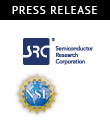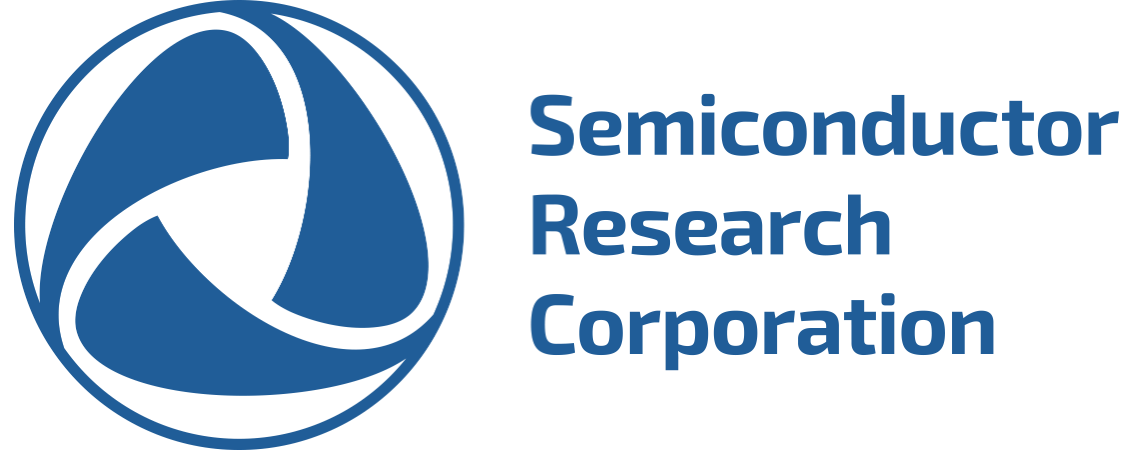New Report on Energy-Efficient Computing, the Result of Jointly Funded Workshop by SRC and NSF, Aligns with Nanotechnology Grand Challenge and National Strategic Computing Initiative
Report outlines key factors limiting progress in computing—particularly related to energy consumption—and novel device and architecture research that can overcome these barriers.

RESEARCH TRIANGLE PARK, N.C. and ARLINGTON, VA (Oct. 20, 2015) – A report that resulted from a workshop funded by Semiconductor Research Corporation (SRC) and National Science Foundation (NSF) outlines key factors limiting progress in computing—particularly related to energy consumption—and novel device and architecture research that can overcome these barriers.
The findings and recommendations in the report are in alignment with the nanotechnology-inspired Grand Challenge for Future Computing announced on October 20 by the White House Office of Science and Technology Policy. The Grand Challenge calls for new approaches to computing that will operate with the efficiency of the human brain. It also aligns with the National Strategic Computing Initiative (NSCI) announced by an Executive Order signed by the President on July 29.
Energy efficiency is vital to improving performance at all levels. This includes from devices and transistors to large IT systems, as well from small sensors at the edge of the Internet of Things (IoT) to large data centers in cloud and supercomputing systems.
“Fundamental research on hardware performance, complex system architectures, and new memory/storage technologies can help to discover new ways to achieve energy-efficient computing,” said Jim Kurose, the Assistant Director of the National Science Foundation (NSF) for Computer and Information Science and Engineering (CISE). “Partnerships with industry, including SRC and its member companies, are an important way to speed the adoption of these research findings.”
Performance improvements today are limited by energy inefficiencies that result in overheating and thermal management issues. The electronic circuits in computer chips still operate far from any fundamental limits to energy efficiency, and much of the energy used by today’s computers is expended moving data between memory and the central processor.
At the same time as increases in performance slow, the amount of data being produced is exploding. By 2020, an estimated 44 zettabytes of data (1 zettabyte equals 1 trillion gigabytes) will be created on an annual basis.
“New devices, and new architectures based on those devices, could take computing far beyond the limits of today’s technology. The benefits to society would be enormous,” said Tom Theis, Nanoelectronics Research Initiative (NRI) Executive Director at SRC, the world’s leading university-research consortium for semiconductor technologies.
In order to realize these benefits, a new paradigm for computing is necessary. A workshop held April 14-15, 2015 in Arlington, Va., and funded by SRC and NSF convened experts from industry, academia and government to identify key factors limiting progress and promising new concepts that should be explored. The report being announced today resulted from the workshop discussions and provides a guide to future basic research investments in energy-efficient computing.
The report builds upon an earlier report funded by the Semiconductor Industry Association, SRC and NSF on Rebooting the IT Revolution.
To achieve the Nanotechnology Grand Challenge and the goals of the NSCI, multi-disciplinary fundamental research on materials, devices and architecture is needed. NSF and SRC, both individually and together, have a long history of supporting long-term research in these areas to address such fundamental, high-impact science and engineering challenges.
###
About SRC
Celebrating more than 30 years of collaborative research for the semiconductor industry, SRC defines industry needs, invests in and manages the research that gives its members a competitive advantage in the dynamic global marketplace. Awarded the National Medal of Technology, America’s highest recognition for contributions to technology, SRC expands the industry knowledge base and attracts premier students to help innovate and transfer semiconductor technology to the commercial industry. For more information, visit https://www.src.org/.
About NSF
The National Science Foundation (NSF) is an independent federal agency that supports fundamental research and education across all fields of science and engineering. In fiscal year (FY) 2015, its budget is $7.3 billion. NSF funds reach all 50 states through grants to nearly 2,000 colleges, universities and other institutions. Each year, NSF receives about 48,000 competitive proposals for funding, and makes about 11,000 new funding awards. NSF also awards about $626 million in professional and service contracts yearly.
MEDIA CONTACTS:
Dan Francisco
Integrity Global for SRC
dan@integrityglobal.biz
916-812-8814
Aaron Dubrow
Public Affairs Specialist, National Science Foundation
adubrow@nsf.gov
703-292-4489


